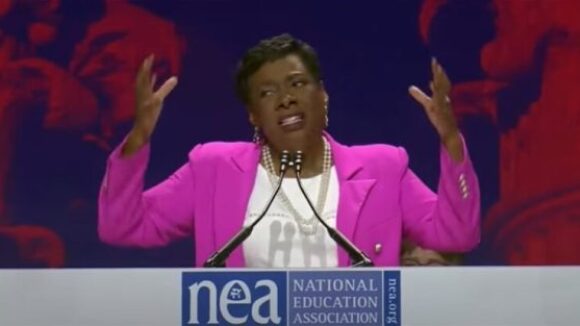Tyranny Triumphs in the Great Lakes State
Ignoring ample evidence of forced unionism’s unfairness and its damaging impact on jobs and incomes, Big Labor Michigan Gov. Gretchen Whitmer signed Right to Work destruction in 2023.

Forced Dues-Seizing Union Dons ‘Disconnected’ From Rank and File
Thanks to years of careful preparation and hard work by National Right to Work Legal Defense Foundation attorneys and their employee clients, there is a strong possibility that, within the next year or two, public servants nationwide will enjoy Right to Work protections.
Many government union bosses are already loudly complaining about the potential loss of their forced-dues privileges.
But Ben Johnson, a former six-year president of the Vermont subsidiary of the giant American Federation of Teachers (AFT) union and a former three-year president of the Vermont AFL-CIO, sees the looming change as beneficial.
During an interview this summer with Sean Higgins of the Washington Examiner, Mr. Johnson acknowledged: “Pretty often you cannot even explain right-to-work to union members” without their thinking it “sounds like a pretty good idea.”
‘We Knew We Would Never See More Than Probably 10-20% Of Them Sign Up as Members’
Recognizing that many Americans may be interested to hear how a man who was a high-ranking union official as recently as last year came to believe that compulsory unionism is wrong, Mr. Johnson has made a 17-minute video with the National Right to Work Committee. It may now be viewed on the Committee website.
Mr. Johnson today acknowledges there is “something screwy” about the idea that “an employer can take money from your paycheck against your will and give it to a private third party you may want nothing to do with, and whose very existence you may oppose on philosophical, financial, or strategic grounds.”
But throughout his years as a union officer in the Green Mountain State, he didn’t regard such compulsion as wrong, because he viewed the world “solely in terms of power,” or, to put it even more bluntly, as “Kill or be killed . . . .”
The proximate cause of Mr. Johnson’s change of heart was AFT bosses’ long campaign, beginning in 2009, to corral Vermont childcare workers into their government union.
He knew from the start that these independent contractors and small business owners, “paid a subsidy by the state to provide childcare for low-income families,” were “not employees of anyone, really, and certainly not [of] the state.”
He and his colleagues also quickly came to realize there was no “statewide community” of childcare providers, and no such community could be forged:
“We knew we would see no more than probably 10-20% of them sign up as members.
“They were spread across the state, house by house. To visit all of them even once a year took an enormous expenditure of time and money.”
‘The Real Value Proposition’ Was ‘They Could Help Us’ Create a ‘Political Machine’
Why would Big Labor officials even be interested in forming a union in which forced-fee payers would outnumber voluntary members by roughly 5.5 to one?
Mr. Johnson’s explanation is remarkable:
“The real value proposition to the union … was that because they were covered by the contract we could communicate with them about politics.
“And because they each saw 5-6 families a day through their childcare businesses, they could help us create a powerhouse political machine that could reach every nook and cranny in every corner of the state.”
Ultimately, the AFT campaign to secure monopoly-bargaining privileges over Vermont childcare workers failed, and Mr. Johnson decided he no longer wanted to head an organization “at war with the people” it is supposed to be serving.
While he had once believed forced fees for nonmembers made unions “powerful,” he concluded that, in practice, as he told Mr. Higgins, “the automatic payment system has allowed unions to become disconnected from their members.”
Right to Work Vice President Matthew Leen commended Mr. Johnson for recognizing, after a decade-long career as a union official, that if unions can’t “survive on their own, by persuading nonmembers to join,” they shouldn’t survive.
“Ben Johnson’s story can help Right to Work supporters remember,” Mr. Leen commented, “that our fight is fundamentally against a corrupt labor-law system, and not any group of people.”
(Click here to download the October 2017 National Right to Work Newsletter)

Ignoring ample evidence of forced unionism’s unfairness and its damaging impact on jobs and incomes, Big Labor Michigan Gov. Gretchen Whitmer signed Right to Work destruction in 2023.

Largely thanks to the Right to Work attorney-won U.S. Supreme Court decision in Janus v. AFSCME, union bosses like NEA President Becky Pringle are no longer able to block virtually all meaningful education policy reforms.

Avelo employee Kim Howard believes all the firm’s flight attendants should get to vote on continued AFA rule. Credit: WTNH-TV (ABC,…